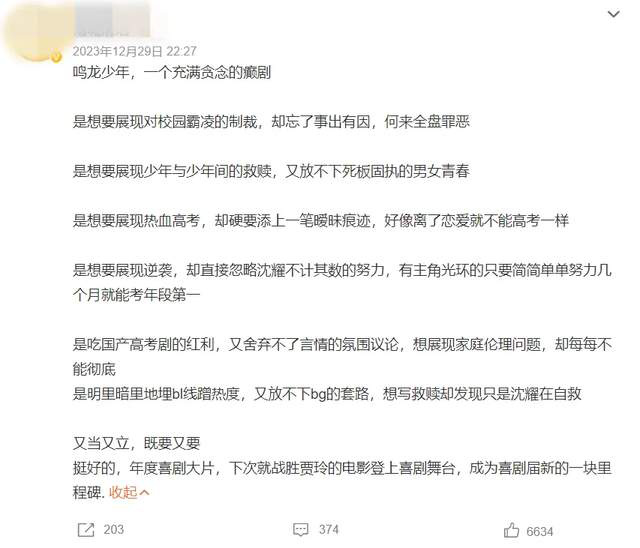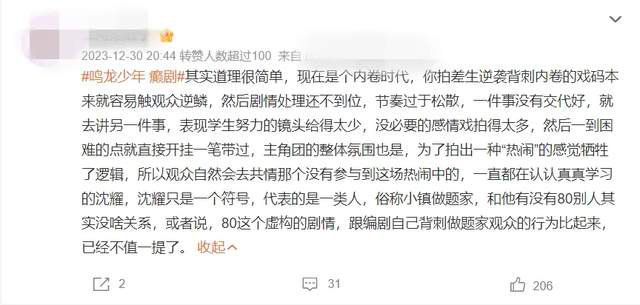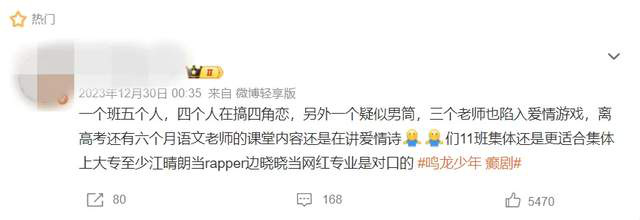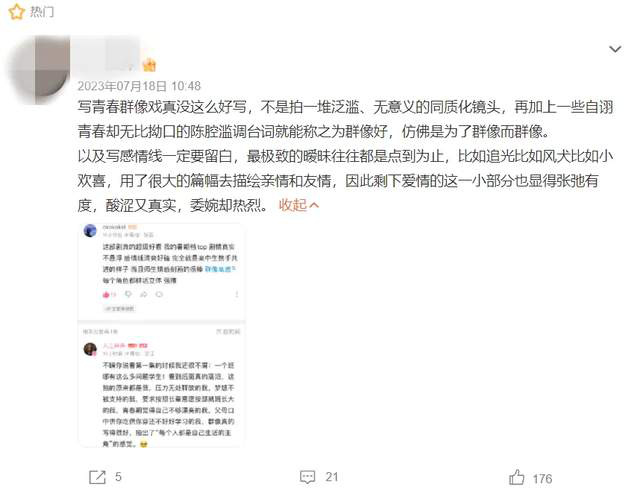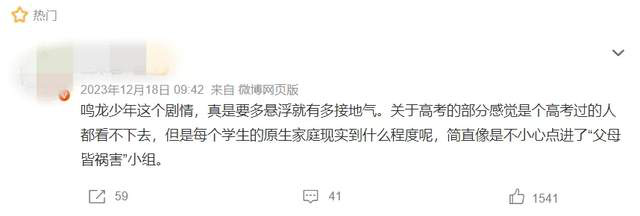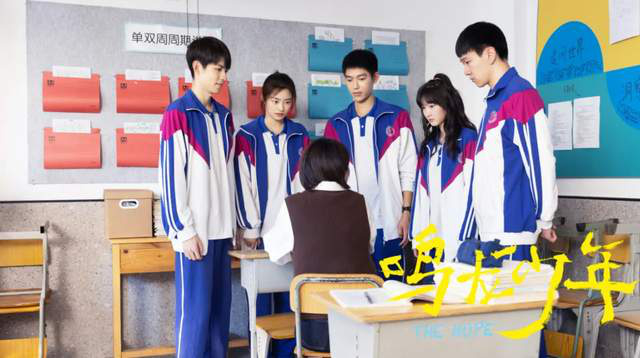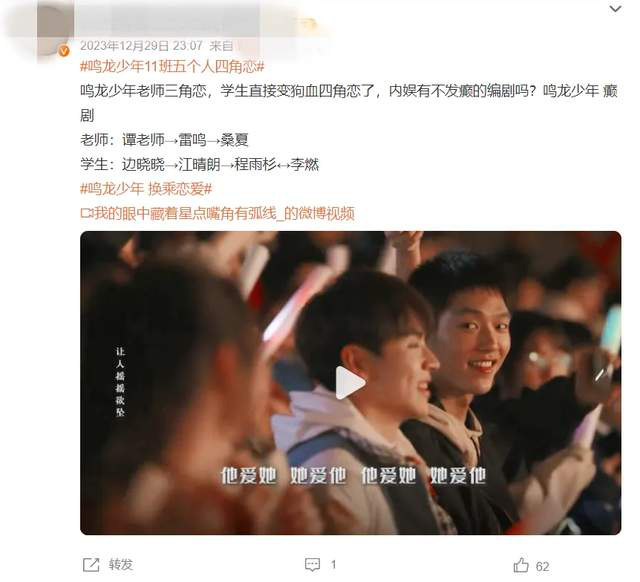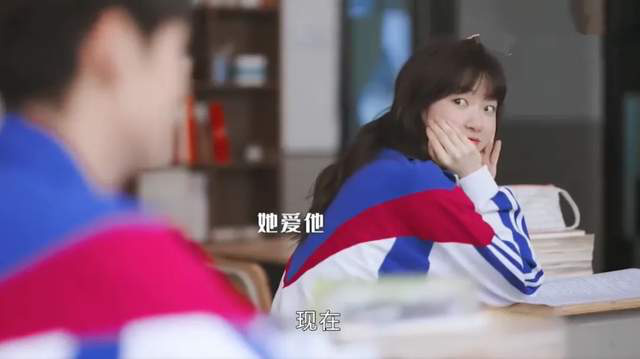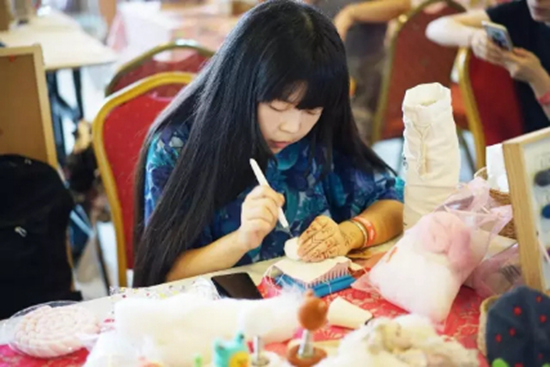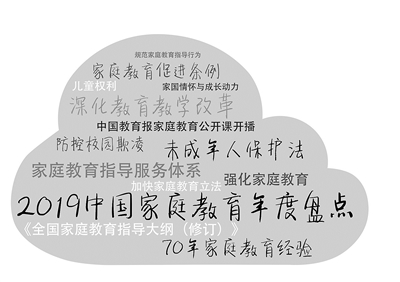This year, under the correct leadership of the CPC Central Committee and the State Council, through the joint efforts of Party committees, governments, agricultural departments at all levels, and the broad masses of peasants, difficulties such as freezing rain and snow in the south, the Wenchuan earthquake in Sichuan, and frequent occurrence of pests and diseases have been overcome. The total grain output and per unit area yield have both increased for five consecutive years, both reaching the best level in history, which has become a prominent highlight of economic and social development and laid a solid foundation for promoting the steady and rapid development of the national economy.
In order to consolidate the development achievements of grain production, further mobilize the enthusiasm of local governments in attaching importance to agriculture and grasping grain, farmers in farming and developing grain through science and technology in agricultural departments, create a good atmosphere in which the whole society attaches importance to grain production, and promote the stable development of grain production, our Ministry has decided to commend the units and individuals that have made significant contributions and made outstanding achievements in developing grain production this year. Awarded the title of "National Advanced County Model of Grain Production" to 20 cities (counties, districts, banners and farms) such as yushu city, Jilin Province, awarded the title of "National Advanced Worker Model of Grain Production" to 17 comrades such as Luo Kuihu of Henan Province, and awarded the title of "National Model of Large Grain Production" to 20 comrades such as Ren Yuanguo of Inner Mongolia Autonomous Region; It was awarded the title of "National Advanced County of Grain Production" to 200 cities (counties, districts, banners and farms) such as Tengzhou City in Shandong Province, the title of "National Advanced Worker of Grain Production" to 300 comrades such as Dai Kuigen in Hunan Province, and the title of "National Large Grain Producer" to 500 comrades such as Zhang Xiuzhe in Heilongjiang Province.
It is hoped that the commended units and individuals will cherish their honor, carry forward their achievements, make persistent efforts, give full play to their exemplary role, and make new contributions to promoting the stable development of grain and ensuring national food security. Agricultural departments at all levels should vigorously publicize the advanced deeds of commended units and individuals, popularize their valuable experience, actively create a good atmosphere in which the whole society attaches great importance to and all departments cooperate closely to develop grain production, accelerate the construction of a long-term mechanism for the stable development of grain production, vigorously develop modern agriculture, and make new contributions to the sound and rapid development of the national economy.
Attachment: List of advanced units, individuals and pacesetters of national grain production in 2008.
Press release issued on December 26th, 2008
Attachment:
2008List of national advanced grain production units, individuals and pacesetters in.
First, the national grain production advanced county pacesetter (20)
Zhao County, Hebei Province
Kezuozhongqi, Inner Mongolia Autonomous Region
Molidawa Banner, Inner Mongolia Autonomous Region
Changtu County, Liaoning Province
Yushu city, Jilin Province
Nongan County, Jilin Province
Wuchang city, Heilongjiang Province
Zhaodong City, Heilongjiang Province
Xinghua city, Jiangsu Province
Huoqiu County, Anhui Province
Poyang county, Jiangxi province
Daiyue District, Shandong Province
Pingdu city, Shandong Province
Hua county, Henan Province
Gushi County, Henan Province
Zaoyang City, Hubei Province
Xiangyin County, Hunan Province
Zhongjiang County, Sichuan Province
Qitai County, Xinjiang Uygur Autonomous Region
Heilongjiang province agricultural reclamation general bureau Qixing farm
Two, the national advanced workers in grain production model (17)
Lilianxi Hebei province agriculture department grain and edible oil Chu
Duan Aimin Changzhi Agricultural Bureau of Shanxi Province
Ren Kejun Jilin Provincial Agriculture Committee
Hou Chunshan Fujin Agricultural Mechanization Management Bureau, Jiamusi City, Heilongjiang Province
Zhang Hongcheng Yangzhou University
Dong Gensheng Wuhu County Agricultural Technology Promotion Center, Wuhu City, Anhui Province
Zeng Fanfu Agricultural Bureau of Ji ‘an City, Jiangxi Province
Dong Shuting Shandong Agricultural University
Luokuihu Henan Provincial Department of Agriculture
Zhang Decai Hubei Provincial Department of Agriculture
Lin Qingshan Guangdong Crop Technology Extension Station
Shixue Yu Sichuan Liangshan Yi Autonomous Prefecture Agricultural Bureau
Fanyiyong Guizhou Province Tongren Prefecture Yanhe Tujia Autonomous County Agricultural Bureau
Hu Jun Xizang Autonomous Region Lhasa Agricultural Technology Extension Station
Liu Yan Shaanxi Yulin Agricultural Bureau
Shangxunwu Gansu Province Agriculture and Animal Husbandry Department
Yingang Heilongjiang province agricultural reclamation general bureau jiansanjiang branch bureau
Three, the national grain production model (20)
Jia Lianhai Jia Lv Cun, Longhua Town, Jingxian County, Hengshui City, Hebei Province
Ren Yuanguo Houbre Baolige Sumu, Xinbarag Zuoqi, Hulunbeier City, Inner Mongolia Autonomous Region
Yu Huihuai xu jia cun, Liujianfang Township, Liaozhong County, Shenyang City, Liaoning Province
Hao Fuxia Zhonghe Town, meihekou city, Tonghua City, Jilin Province
Zhao Fuhe Qinggang Village, Daxing Town, Tailai County, Qiqihar City, Heilongjiang Province
Ding Yangrui Liutai Village, Liuxin Town, Tongshan County, Xuzhou City, Jiangsu Province
Feng Zebao Jian Chou Cun, Yiting Town, Yiwu City, Jinhua City, Zhejiang Province
Gehaoxin Yingxi Office, Yingzhou District, Fuyang City, Anhui Province
Hai Cheng Zhen Xi Bei Cun, Longhai City, Zhangzhou City, Fujian Province, Huang Xiaoming
Tangkaiping luozhuang Gaodu Sub-district Office, Linyi City, Shandong Province
Yan Shimin Pantang Village, Lizhuang Township, liangyuan district, Shangqiu City, Henan Province
Zhou Yi Bai Ni Hu Xiang Horticultural Field, Xiangyin County, Yueyang City, Hunan Province
Huang Yingying Dengyun Village, Cha Dong Xiang, Lingui County, Guilin City, Guangxi Zhuang Autonomous Region
Liang Xingguo Hongtu Village, Hongtu Township, fengjie county City, Chongqing
Leng Shimo Jinhua Village, Lianshan Town, Guanghan City, Deyang City, Sichuan Province
Tianjiansuo Village, Panjiang Town, Zhanyi County, Qujing City, Yunnan Province
Xia He Qing Xiang Huang Cheng Cun, Suzhou District, Jiuquan City, Gansu Province, Zhang Hanping
Wang Lin Tong Yi Cun, Ligang Town, Helan County, Yinchuan City, Ningxia Hui Autonomous Region
Wang Zhanjiang Farm in Laolonghe District, Changji National Agricultural Science Park, Changji Hui Autonomous Prefecture, Xinjiang Uygur Autonomous Region
Wang Shuqin Heilongjiang Provincial Agricultural Reclamation Bureau Mudanjiang Branch Bureau 854 Farm
Four, the national advanced grain production counties (200)
Hebei Province
Zhaoxian, daming county, Dingzhou, xian county, Zaoqiang, yutian county, Luancheng and Gaocheng.
Shanxi province
Xinfu District, Shouyang County, Gaoping County and Xiaxian County
Inner Mongolia Autonomous Region
Kezuozhong Banner, Molidawa Banner, Arong Banner, Zhalantun City, Zhalaite Banner, Keyouqian Banner, Kezuohou Banner, Horqin District, Onniute Banner, Songshan District, Liangcheng County, Dalate Banner and Hangjinhou Banner.
Liaoning province
Changtu County, Fuxin County, Haicheng City, zhuanghe city City and Kangping County.
Jilin province
Yushu city, Nong ‘an, Gongzhuling, Fuyu, Lishu, Qianguo, Changling, dehui city, Jiutai, shuangliao city, Gan ‘an and Yitong.
Heilongjiang province
Wuchang city, Zhaodong, Longjiang, Bayan, Hailun, Wangkui, Zhaoyuan, nehe city, Nenjiang, Beilin, Qinggang, Shuangcheng, Fujin, Hulin and Baoqing.
Jiangsu Province
Xinghua city, Baoying, Hai ‘an, Rudong, Tongshan, xinyi city, Hongze, Xuyi, Yandu, Sheyang, guannan county, Sihong and Xinyang Farm.
Zhejiang Province
Jiangshan City and Xiuzhou District
Anhui province
Huoqiu County, Guoyang County, Suixi County, Yingshang County, Huaiyuan County, Shouxian County, Mengcheng County, Wangjiang County, Dingyuan County, Taihe County, Lujiang County and Guangde County.
Fujian Province
Youxi County, Pucheng County
Jiangxi province
Poyang, fengcheng city, Xinjian, Nanchang, yugan county, Taihe, duchang county, Gao ‘an, Linchuan and Fengxin counties.
Shandong Province
Daiyue District, pingdu city, Tengzhou City, Qihe County, Zhucheng City, Linzi District, Qufu City, yanggu county City, Cangshan County, Shan County, Cao County, Licheng District, Huimin County, Guangrao City and Laizhou City.
Henan Province
Hua county, Gushi, zhongmou county, Kaifeng, Yiyang, Yexian, Xunxian, Changyuan, wen county, Puyang, Xiangcheng, Wuyang, lingbao city, tanghe county, dengzhou city, Xiayi, yongcheng city, Xixian, Huaiyang, Luyi, Shangcai and Zhengyang.
Hubei province
Zaoyang City, Jianli County, Xiangyang District, Zengdu District, Zhongxiang City, Xiantao City, Shayang County and Gongan County.
Hunan province
Xiangyin County, Xiangtan County, Ningxiang County, Heshan District, Hanshou County, Youxian County, Lengshuitan District and Shuangfeng County.
Guangdong Province
Gaozhou, luoding city
Guangxi Zhuang Autonomous Region
Xingye County, Wuming County, Lingui County and Guiping City
Hainan province
Ding ‘an County
Chongqing
Zhongxian, Dazu and Yunyang counties
Sichuan Province
Zhongjiang, Santai, Renshou, jianyang city, Bazhou, Xuanhan, Zizhong, Yuechi, nanbu county, Yibin and Shehong counties.
Guizhou Province
Suiyang County, Xingyi City, Jinsha County, Songtao County
Yunnan Province
Yanshan County, Longyang District, Xuanwei City, Xundian County
Xizang Autonomous Region
Bainang County
Shaanxi province
Qishan County, Chang ‘an District, Linwei District and Gan County
Gansu province
Qin ‘an County, Ning County, Yuzhong County and Gulang County
Qinghai province
huangzhong county
Ningxia Hui Autonomous Region
Pingluo County and Qingtongxia City
Xinjiang Uygur Autonomous Region
Qitai County, Kuqa County, Shufu County
Heilongjiang Provincial Agricultural Reclamation Bureau
Qixing Farm, Jiansanjiang Branch, 852 Farm, 853 Farm, Qianjin Farm, 854 Farm and 856 Farm.
Xinjiang production and construction corps
Nongyishi yituan
Five, the national advanced workers in grain production (299)
Beijing
Tonglimin Fangshan District Planting Service Center
Tianjin
Cuikeguang wuqing district Agricultural Bureau
Hebei Province
Li Lianxi Hebei Provincial Department of Agriculture
Jinyu Hebei province agriculture department
Zhang Zhigang Hebei Province Seed Management Station
Hanfengxiao Shijiazhuang Agricultural Bureau
Li Hongtao Handan agricultural bureau
Guo huaifeng Handan Guantao county agricultural bureau
Lusuizeng Xingtai agricultural bureau
Chenwenfu Xingtai ren county agricultural bureau
Yangxuecheng Tangshan agricultural bureau
Tianfeng Baoding agricultural bureau
Zhou shun Zeng Bai ge Zhuang farm
Shanxi province
Duan aimin Changzhi agricultural bureau
Lan Jinglei Shanxi Provincial Department of Agriculture
Duhengwu Datong Yanggao County Agricultural Bureau
Dai Jiangong Shanxi Agricultural Machinery Bureau
Zhanglaishun Linfen xiangfen county agricultural machinery bureau
Inner Mongolia Autonomous Region
Taoke Inner Mongolia Autonomous Region Agriculture and Animal Husbandry Department
Jiayuefeng Inner Mongolia Autonomous Region Agriculture and Animal Husbandry Department
Wangyan Inner Mongolia Autonomous Region Agriculture and Animal Husbandry Department
Wangjianjiang Inner Mongolia Autonomous Region Agriculture and Animal Husbandry Department Agricultural Machinery Bureau
Baiyin Inner Mongolia Autonomous Region Agriculture and Animal Husbandry Department Agriculture and Pasture Management Bureau
Mariliang Inner Mongolia Autonomous Region Agriculture Technology Popularization Station
Gaofanshen Inner Mongolia Autonomous Region Soil Fertilizer Workstation
Yangbaosheng Inner Mongolia Autonomous Region Plant Protection Plant Inspection Station
Wang Yuefei Inner Mongolia Autonomous Region Seed Management Office
Yinxunfeng Hulun Buir agriculture husbandry bureau
Wang Jianming Hulun Buir Arong Qi Agriculture and Animal Husbandry Bureau
Yanglianbao Hinggan League Jalaid Qi Agricultural Bureau
Xiaohua Tongliao agriculture technology popularizing station
Wei Qingsheng Tongliao Kailu County Agriculture Animal Husbandry Bureau
Wangerqi Chifeng agriculture technology popularizing station
Wugang Chifeng Aohan qi agricultural bureau
Wangronggui Ulanqab agriculture technology popularizing station
Yuequanyao Baotou Tumd Youqi Agriculture Animal Husbandry Bureau
Shiyoucheng Ordos agriculture technology popularizing station
Wangyonghou Bayannur Urad Qianqi Agricultural Bureau
Liaoning province
Chenjian Liaoning Rural Economic Committee
Hou Yanhua Liaoning Rural Economic Committee
Yang Xiaojing Dongfeng Farm, Dawa County, Panjin City
Liang Mao Shenyang Rural Economic Committee
Guanzuodu Anshan Rural Economic Committee
Zhangboyan Tieling village economy Committee
Liang Aibin Fuxin Rural Economic Committee
Duyehong Liaoning Province Rural Economic Committee Agricultural Machinery Supervision Management Division
Suhanqi Tieling Changtu county agricultural machinery bureau
Jilin province
Ren Kejun Jilin Provincial Agriculture Committee
Zhang Yonglin Jilin Provincial Agriculture Committee
Chenghong Jilin Province Agriculture Committee
Jinfengyun Jilin Province Agricultural Technology Extension Station
Zhang Sanyuan Jilin Academy of Agricultural Sciences
Wang Piwu Jilin Agricultural University
Zhao Chungui Jilin Agriculture Committee
Monday Yiping Siping Agriculture Committee
Zhao Guochun Tonghua Agriculture Committee
Panhengqi Changchun nongan county agricultural bureau
Zhangyuxin Siping Yitong county agriculture technology popularizing station
Qiuchangli Liaoyuan Dongfeng County Agricultural Technology Extension Station
Yangweiyou Yanbian autonomous prefecture Dunhua agricultural bureau
Ligang Jilin jiaohe city Agricultural Bureau
Miaochen Baicheng Zhenlai county agricultural bureau
Duanlian Tonghua Liuhe County Agricultural Technology Extension Station
Mao forest Songyuan qianguo county agriculture technology popularizing center
Heilongjiang province
Houchunshan Jiamusi Fujin agriculture mechanization management bureau
Wang Zhonglin Heilongjiang Provincial Agriculture Committee
Wang Zhaobin Heilongjiang Provincial Agriculture Committee
Li Guojun Heilongjiang Agricultural Machinery Bureau
Lishirun Heilongjiang Provincial Agriculture Committee
Kangzhongbao Heilongjiang Province Seed Management Bureau
Lijiongdao Heilongjiang province agriculture technology popularizing station
Chen Jiguang Heilongjiang Province Plant Inspection Plant Protection Station
Li Xirong Harbin Municipal People’s Government
Qiqihar Municipal People’s Government of Ma Zhanjiang
Mudanjiang Agriculture Committee of Zhang Xiaoyan
Liuchen Jiamusi Fujin Municipal Committee
Daqing Agriculture Committee of Zhang Shimin
Yichun Agriculture Committee of Zhang Qingshan
Wang Xingwu Boli County People’s Government of qitaihe city
Mishan Agriculture Committee, Jixi City, Liu Desheng
Gaomin Shuangyashan Municipal People’s Government
Liu Chunlei hegang Agriculture Committee
Heihe Municipal Committee of Hao Huilong
Zhu Yunyong Heihe Agricultural Machinery Management Bureau
Libaoshan Suihua Municipal People’s Government
Zangshifu Daxinganling region administrative office agriculture Committee
Shanghai
Yulong Gu Shanghai Agricultural Technology Extension Service Center
Jiangsu Province
Zhang Hongcheng Yangzhou University
Shulinhua Jiangsu province crop cultivation technology guidance station
Pan Yongsheng Jiangsu Provincial Department of Agriculture and Forestry
Gu Yaojun Zhenjiang Danyang Agriculture and Forestry Bureau
Qiu Shengrong Yangzhou Jiangdu Agriculture and Forestry Bureau
Qiujiang Taizhou Agriculture Committee
Peng Ruiqing Taizhou xinghua city Agricultural Bureau
Rudong County Agriculture and Forestry Bureau, Nantong City, Xu Changqing
Dongquancai Xuzhou Agricultural Bureau
Xuchunshan Huaian agricultural bureau
Wangfutong Yancheng Agricultural Bureau
Chenfuyin Lianyungang Agricultural Bureau
Hejingrui Suqian agriculture technology integrated service center
Xu Dehua Jiangsu province nongken group agriculture technology popularizing center
Wujin District Agricultural Machinery Bureau, Changzhou City, Luo Zhiqiang
Yang Guofang Jintan agricultural machinery bureau
Xieyuejin Rugao agricultural machinery bureau
Wang Heping Yangzhou agricultural machinery popularizing station
Zhang Hengbin Xuzhou Feng County Agricultural Machinery Bureau
Zhejiang Province
Wangyuexing Zhejiang Provincial Department of Agriculture Crops Management Bureau
Xiaguomian Hangzhou Xiaoshan District Agriculture Technology Promotion Center
Huangjian Shaoxing Zhuji Agricultural Machinery Management Station
Anhui province
Dong Gensheng Wuhu Wuhu County Agriculture Technology Promotion Center
Wanglin Anhui Agriculture Committee
Chen Faming Anhui Agricultural Machinery Management Bureau
Chen Zaigao Anqing Planting Management Bureau
Jialiping Bengbu nongji promotion center
Gaohui Bozhou Lixin county agriculture Committee
Guoyang County People’s Government of Bozhou City, Zhang Huasong
Jiyonghan Chaohu he county agriculture Committee
Wangyang Chuzhou Agriculture Committee
Hanyinping Chuzhou Quanjiao County Agriculture Committee
Tangdali Fuyang Agriculture Committee
Lihuaifa Fuyang Taihe County Agriculture Committee
Tao Lianghui Shou County People’s Government of Lu ‘an City
Taohengchang Maanshan dangtu county Agriculture Technology Promotion Center
Jin Deping Xuancheng Xuanzhou District Agriculture Committee
Niuchuanlin Huainan maoji District Agriculture Development Bureau
Qianjin Xuancheng Agricultural Machinery Management Bureau
Fang Xiuyi Anqing Agricultural Machinery Management Bureau
Nianfuyi Bengbu Agricultural Machinery Management Bureau
Fujian Province
Linyuqi Sanming agriculture technology popularizing station
Yousongzhang Longyan Changting County Agricultural Bureau
Liuduanhua Nanping Agricultural Science Institute
Jiangxi province
Zeng fanfu Ji’ an agricultural bureau
Huang Tu Qiang Jiangxi Provincial Department of Agriculture
Yudonghui Jiangxi province cereals, oils and crops bureau
Chengfeihu Jiangxi province agriculture technology popularizing station
Liu Fangyi Nanchang Nanchang County Agricultural Bureau Plant Protection Plant Inspection Station
Lengxianhe Jiujiang Wuning County Agricultural Bureau Nongji Extension Center
Huang Caipeng Yichun Fengxin County Agricultural Bureau
Heshengwen Pingxiang agricultural bureau
Hushuiping Xinyu agricultural bureau
Liu Binggen Yichun Zhangshu Agricultural Machinery Management Bureau
Yijie Yichun agricultural bureau liangjingzhan
Wu Yihua Shangrao Poyang County Agricultural Bureau
Shuaigeliu Fuzhou Agricultural Bureau
Shandong Province
Dong Shuting Shandong Agricultural University
Wang Fahong Shandong Academy of Agricultural Sciences
Chenyi Shandong Provincial Department of Agriculture
Xuzhaochun Shandong Province Agricultural Technology Extension Station
Chailangao Shandong Province Agricultural Technology Extension Station
Yinxiubo Shandong Province Agricultural Technology Extension Station
Wanghao Yantai Haiyang Agricultural Bureau
Zhangshudong Weifang Agricultural Bureau
Huang Jiubai Jining Agricultural Bureau
Houli Taian agricultural bureau
Zhangjiaxin Binzhou Yangxin county ruize seed industry co., ltd
Shaoguojun Dezhou Agricultural Bureau
Dezhou Agricultural Bureau of Han Lijun
Zhangzhongquan Liaocheng Agricultural Bureau
Linaishan Linyi agricultural bureau
Lihuaicun Heze agricultural bureau
Dongyoufu Shandong province agricultural machinery technology popularizing station
Jia Jianguo Shandong Agricultural Machinery Management Office
Jiangzicun Heze Agricultural Machinery Management Bureau
Qu yuan zhi lai Zhou agriculture machinery management bureau
Zhangzhenzhi Weifang Agricultural Machinery Management Bureau
Henan Province
Luokuihu Henan Provincial Department of Agriculture
Zhang Jinlong He ‘nan Provincial Department of Agriculture
Huoxiaoni he’ nan province seed management office
Maofengwu he’ nan province agriculture technology popularizing station
Cheng Xiangguo he’ nan plant protection plant quarantine station
Wang Zhiyong he’ nan province soil fertilizer station
Lei Zhensheng He ‘nan Academy of Agricultural Sciences
Zhu Yunji Henan Agricultural University
Li Xinyou Zhengzhou Agricultural Bureau
Zhang Shengguo Kaifeng Agriculture and Forestry Bureau
Tangjiankui Luoyang Agricultural Bureau
Liqinghao Pingdingshan Agricultural Bureau
Sun Shunde Anyang agricultural bureau
Huquangui Hebi Agricultural Bureau
Mei Junjie Xinxiang huixian city Agricultural Bureau
Duan Xinguo Jiaozuo Agricultural Bureau
Maohailin Puyang agricultural bureau
Meng Chunming Xuchang Agricultural Bureau
Luohe Agricultural Bureau of Yan Changhai
Deng Zhongmin Sanmenxia Agricultural Bureau
Songtianqing Nanyang agricultural bureau
Weizuozhen Shangqiu Agricultural Bureau
Qicheng Xinyang agricultural bureau
Wangzefu Zhoukou agricultural bureau
Libaoshan Zhumadian agricultural bureau
Li Jinzhu Jiyuan agriculture technology popularizing center
Youlanping Henan Province Agricultural Machinery Management Bureau
Liuxiaowen he’ nan province agricultural machinery technology popularizing station
Shu Chunxia Xuchang Agricultural Machinery Management Bureau
Feng Xuesen Anyang Agricultural Machinery Management Bureau
Zhangrusheng Puyang Agricultural Machinery Management Bureau
Kong Guixia yongcheng city Agricultural Machinery Management Bureau
Zhangyishan Zhumadian suiping county Agricultural Machinery Management Bureau
Mengjin County, Luoyang City, Zhao Jianwei Agricultural Machinery Management Bureau
Hubei province
Zhang Decai Hubei Provincial Department of Agriculture
Wangyougen Hubei Province Agricultural Mechanization Management Office
Zhang Qionghua Hubei Provincial Department of Agriculture
Li Xianjun Jingzhou honghu city Agricultural Bureau
Xiongyuanjun Tianmen agricultural bureau
Zhangkeyang Jingmen jingshan county Agricultural Bureau
Wang Lifang Xiangfan Yicheng Agricultural Bureau
Zhou Shengli Huanggang Macheng Agricultural Bureau
Hanchuan Agricultural Bureau of Xiaogan City, Ma Jianguo
Zhu Dexiong Wuhan huangpi district Agricultural Bureau
Liuxizhong Huanggang Huangmei County Agricultural Bureau
Yin news Jingzhou songzi agricultural bureau
Hunan province
Cheng Haibo Hunan Provincial Department of Agriculture
Dai Kuigen Hunan Provincial Department of Agriculture
Ye Xinhua Changde Hanshou County Agricultural Bureau
Zhou Zeyou Hengyang Hengnan County Agricultural Bureau
Xiangtan County Agricultural Bureau, Xiangtan City, Hu Jianwei
Helongyu Zhuzhou You County Agricultural Bureau
Lin Zhongxiu Hengyang Hengyang County Agricultural Bureau
Tianmingxi Huaihua agricultural bureau
Xiong Guozhi Changsha Wangcheng County Xin Kang Xiang Nong Ji Zhan
Hu Chaogang Changsha Changsha County Agricultural Machinery Management Bureau
Liu Renqiu Hengyang Hengdong County Agricultural Machinery Management Bureau
Lu Zhongwen Yiyang Nan County Agricultural Machinery Management Bureau
Guangdong Province
Lin Qingshan Guangdong Crop Technology Extension Station
Meizhou Agricultural Bureau of Sun Zhongxing
Chenxixian Jieyang Jiedong County Agricultural Bureau
Guangxi Zhuang Autonomous Region
Weizuhan Guangxi Zhuang Autonomous Region Agriculture Department
Hebin Guangxi Zhuang Autonomous Region Agriculture Department
Tangbowen Nanning Agricultural Bureau
Luozhaorong Yulin agricultural bureau
Laokerui Bose Tiandong County Agriculture Technology Promotion Center
Li Wenke Guangxi Zhuang Autonomous Region Agricultural Mechanization Management Bureau
Hainan province
Yefeng Hainan province seed Zhan
Chongqing
Guofeng Chongqing agricultural technology popularizing station
Wanghongkai Kaixian county agricultural bureau
Huangzhengyuan Yongchuan district agricultural bureau
Luozekuan Chongqing Agricultural Machinery Management Office
Sichuan Province
Shixue Yu Liangshan Yi Autonomous Prefecture Agricultural Bureau
Ren Yongchang Sichuan Provincial Department of Agriculture
Zhou Xiaoqiang Sichuan Provincial Department of Agriculture
Libin ziyang Yanjiang District Agricultural Bureau
Zengguizhou Neijiang Zizhong County Agricultural Bureau
Zhang Renxi Guang ‘an Guang ‘an District Agricultural Bureau
Sunhongqi Dazhou da county agricultural bureau
Fuhong Luzhou xuyong county Agricultural Bureau
Tang ziran Suining pengxi county agricultural bureau
Xianxiongzhang Bazhong Pingchang County Agricultural Bureau
Caibaocheng Nanchong Agricultural Bureau
Zhongshunqing Zigong Fushun county agricultural bureau
Suining Agricultural Machinery Management Bureau of Hu Jianqing
Xuwenjin Mianzhu Agricultural Machinery Management Bureau
Zhang Tongbin Chengdu Xindu District Agricultural Machinery Bureau
Guizhou Province
Fanyiyong Tongren region Yanhe Tujia Autonomous County Agricultural Bureau
Lishimin Zunyi agriculture technology popularizing station
Tangweimin Qiannan Zhou agriculture technology popularizing station
Zhuyi Guizhou province agriculture technology popularizing station
Xie Dingmin Bijie Prefecture Agricultural Bureau
Liang Xinyue Tongren region agricultural machinery service center
Yunnan Province
Liu Yueming Yunnan Province Agricultural Technology Extension Station
Weiming Kunming Agricultural Science Research Institute
Zhangtinghong Wenshan Zhou agriculture technology popularizing center
Lvkaizhou Chuxiong Zhou Nanhua County Agriculture Technology Extension Service Center
Wangbanghai Kunming Shilin County Agriculture and Animal Husbandry Bureau
Luan Guoqiang Qujing luliang county agriculture technology popularizing center
Xizang Autonomous Region
Hujun Lhasa agriculture technology popularizing station
Shaanxi province
Liuyan Yulin agricultural bureau
Wang Yali Shaanxi Provincial Department of Agriculture
Wang Rongcheng Shaanxi Province Agricultural Technology Promotion Center
Baoji Agricultural Bureau of Zhou Changan
Nanjianghua Weinan pucheng county Agricultural Bureau
Guo Linbin Xi ‘an Agricultural Machinery Supervision and Promotion Station
Gansu province
Shangxunwu Gansu Province Agriculture and Animal Husbandry Department
Yangqifeng Gansu Province Agricultural Technology Extension Station
Wang Caibin Baiyin Huining County Agriculture Technology Promotion Center
Huahechun Wuwei Gulang county superior breed breeding farm
Likefu Qingyang huachi county agriculture technology popularizing center
Luozhen jinchang Yongchang County Agricultural Technology Center
Qinghai province
Caiyuefeng Qinghai Province Agricultural Technology Extension Station
Ningxia Hui Autonomous Region
Yangshengming wuzhong Agriculture Technology Extension Service Center
Zeng Lisheng Shizuishan Pingluo County Agriculture Technology Extension Service Center
Helan County Agriculture Technology Extension Service Center, Yinchuan City, Li Ruyi
Wang Yanping Guyuan Yuanzhou District Agriculture Technology Extension Service Center
Xinjiang Uygur Autonomous Region
Zhengxinmin Aksu region agricultural bureau
Yujunshan Changji Zhou agriculture technology popularizing center
Shiling Kashi region zepu county zhongzi management office
Batoul Abdul Rehe Akto Agricultural Bureau of Manke Prefecture
Wu er kai Xi si la yi Yili autonomous prefecture yining county agricultural bureau
Balati Asmu Xinjiang Uygur Autonomous Region Agriculture and Animal Husbandry Machinery Management Bureau
Heilongjiang Provincial Agricultural Reclamation Bureau
Yingang Heilongjiang province agricultural reclamation general bureau jiansanjiang branch bureau
Madequan Heilongjiang province agricultural reclamation general bureau agricultural bureau
Houqingbo Baoquanling Sub-bureau Junchuan Farm
Sunnaisheng hongxinglong sub-bureau 597 farm
Duenchang Heilongjiang province agricultural reclamation general bureau hongxinglong branch bureau
Xiliangjian Sanjiang sub-bureau Qixing farm
Sunwenhong Mudanjiang sub-bureau 857 farm
Taoxijun Heilongjiang Province Agricultural Reclamation General Bureau Beian Branch Bureau
Zhao Qinghai jiusan sub-bureau shanhe farm
Lvguishan Qiqihar branch bureau chahayang farm
Xinjiang production and construction corps
Yang Zhongjun Agriculture Sixth Division Qitai Farm
Six, the national grain production (500)
Beijing
Huo Wenqi Sanjie Village, Liulihe Town, Fangshan District
Fu Guangzhen Ximafang Village, Yujiawu Huizu Township, Tongzhou District
Tianjin
Jintai Village, Dakoutun Town, Baodi District, Xuyouhai
Dong Wensen Yinhe Garden, North New District, Lutai Town, Ninghe County
Hebei Province
Jia Lianhai Jia Lv Cun, Longhua Town, Jing County, Hengshui City
Yang Wanzi Dongwang Village, Gucheng Town, Longyao County, Xingtai City
Huang Bingxin Wu Wang Zhuang Zhen Dong Guan Dao Cun, Botou City, Cangzhou City
Wang Yuwu Dahuzhuang Village, Hongqiao Town, yutian county, Tangshan City
Zhenzhihe Xingtai Da Cao Zhuang Administration Zone Agriculture Corporation
Jia Ruizeng Nanbaidian Village, Quyangqiao Township, Zhengding County, Shijiazhuang City
Yang Shizhong Xingtai Da Cao Zhuang Farm Agriculture Corporation
Zhao Yuchuan Dong Xin ‘an Village, Ya Ge Ying Xiang, Lincheng County, Xingtai City
Lu Haiying Xiaosai Village, Fangshunqiao Township, Mancheng County, Baoding City
Meilimin Huangxinzhuang Village, Zhangliji Township, Linzhang County, Handan City
Houhaizi Village, Yangqiao Town, daming county City, Guowei Handan City
Yu Zao has a village in Changjiazhuang, a mainland village in Ningjin County, Xingtai City.
Wang Qixiang Zhengkou Town Xibeitun Village, Gucheng County, Hengshui City
Team 5, No.4 Farm, Tang Haixian, Tangshan City, Zhang Yuejin
Jia Gang Nan Jie Cun, Lianzhou Town, Gaocheng City, Shijiazhuang City
Ji Zhenjing Jinzhuang Village, Xiguan Town, Gaocheng City, Shijiazhuang City
Zhang Tonghu Qian Qi Zhuang Cun, Yang Qiao Zhen, daming county, Handan City
Jianqiao Township East Zhang Cun, Fucheng County, Hengshui City, Wang Zhilong
Wang Yancai Da Bai Yang Qiao Cun, Zhifangtou Township, Cang County, Cangzhou City
Zhou Yongsuo Nanqingtuo Village, Xiaozhanggezhuang Town, Fengrun District, Tangshan City
Shanxi province
Chen Wanrong Xihuaiyuan Village, Xugou Town, Qingxu County, Taiyuan City
Yang Cun Xiang Lian Bo Cun, Hejin City, Yuncheng City, Zhang Heping
Zhu Laiyou Xiyanchi Village, Gucheng Town, Shanyin County, Shuozhou City
Wang Wenyi Yangjuanpu Village, Gucheng Town, Shanyin County, Shuozhou City
Jin Shan Pu Xiang Hao Jia Wan Cun, fan shi, Xinzhou City, Zhang Haimin
Mengfeng Village, Mengfeng Town, Qingxu County, Zhaoli Taiyuan City
Gaoliru Xingzhuang Village, Dangliuzhuang Township, datong county City, Datong City
Xue Shouyin Xue Xian Cun, Xiang Le Xiang, Pingyao County, Jinzhong City
Shitie Town, Yuci District, Jinzhong City, Wang Jintang
Inner Mongolia Autonomous Region
Houbre Bao Li Ge Su Mu, Xinbarag Zuoqi, Hulunbeier City, Renyuanguo
Du Weijun Wei Gu Qi Liemin Village, Yinhe Township, Arong Banner, Hulunbeier City
Tengke Town Temohu zhu cun, Molidawa Banner, Hulunbeier City, Aoguilin
Guo Sisheng Hulun Buir Yakeshi Dongxing Sub-district Office
Sun Yuxian Hulun Buir Ergun Shangkuli Sub-district Office
Hao Longhai Hao Rao Shan Cun, Zhalantun City, Hulunbeier City
Danhongshan Inner Mongolia Autonomous Region Daxinganling Farm Management Bureau Ganhe Farm
Xu Jinchang Xing ‘an League Keyou Qianqi Halahei Office Halahei Village
Zhao Yujiang Xing ‘an League Keyou Qianqi Manchu Tunlvshui Village
Baoliang Hinggan League Keyou Zhongqi Zhamuqin Work Department
Jinzhuang Zhou Hinggan League Jalaid Banner Breeding Farm
Liu Guohui Wang Jia Dian Cun, Kailu Town, Kailu County, Tongliao City
Shao Zhifa Dongming Town Dongming Village, Naiman Banner, Tongliao City
Sanjiazigacha, Kulun Town, Kulun Banner, Gaoshuan Tongliao City
Zhang Shuyou Zhalute Banner Wuli Jimuren Sumu village Wu tuanjie village, Tongliao City
Nie Shanhua Zhanlu Village, Hexi Street, Tongliao Economic and Technological Development Zone
Wang Yanheng Tongliao Holingol Dalai Hu Shuo Sub-district Office
Yang Jinting Fanrong Village, Dayingzi Township, linxi county City, Chifeng City
Nie Guofu Tieyingzi Village, Tianyi Town, Ningcheng County, Chifeng City
Liufa Village, Xilamulun Sumushabuga, Bahrain Right Banner, Chifeng City
Liu Shuwen Xiaoyingzi Village, Shisanaobao Township, Bahrain Zuoqi, Chifeng City
Wang Zhaojiang Yijiahe Village, Caimushan Township, Duolun County, Xilin Gol League
Fengyu Village, Benhong Town, Chayou Houqi, Jingming Wulanchabu City
Gaojiagou Village, Dongba Township, Siziwangqi, Wulanchabu City, Zhang Xinming
No.2 Village, Tiancheng Township, Liangcheng County, Waulanqab City, Li Er
Yang Linjun Erdaohe Village, Chengguan Town, Helinger County, Hohhot City
Fan Hailong Qiaoerqi Village, Meidaizhao Town, Tumd Right Banner, Baotou City
Bai Ni Jing Zhen Hou Jia Ying Zi Cun, Dalad Banner, Ordos City, Gaoyouliang
Wangwuhou Bayannur Linhe District Wulantuke Town village Wu tuanjie village
Long Xing Chang Zhen Lian Feng Cun, Wuyuan County, Bayannur City, Liu Jiancheng
Liaoning province
Yu Huihuai xu jia cun, Liujianfang Township, Liaozhong County, Shenyang City
Yue Xuquan Lujia Village, Liujia Township, Beizhen City, Jinzhou City
Taigou Village, Shangma Township, Fushun County, Miao Shuxin Fushun City
Nantai Village, Xintai Town, taian county City, Lvweitai Anshan City
Dong Shaowen Liu Jian Fang Xiang Gang Zi Cun, Liaozhong County, Shenyang City
Li Gengjiu Shanhaifeng Village, Anzishan Township, zhuanghe city, Dalian
Song Yanhui Wutaizi Village, Da hushan town, Heishan County, Jinzhou City
San Tai Zi Zhen Si Hai Cun, Linghai City, Jinzhou City, Liu Yadong
Jiang Hong Pianpotai Village, Xingkai Street, kaiyuan city City, Datieling City
Wangjia Township, Dawa County, Panjin City, Luoqingdi
Sun Zhigang Qian Yang Cun, qianyang town, donggang city, Dandong City
Yao Chenghai Shengli Village, qianyang town, donggang city, Dandong City
Jin Lingjiu Houlu Village, Qingduizi Town, Beizhen City, Jinzhou City
Jilin province
Hao Fuxia Zhonghe Town, meihekou city, Tonghua City
Qi Fengchao Hougang Village, Dapo Town, yushu city, Changchun City
Luan Fuju Minquan Village, Xianfeng Township, yushu city City, Changchun City
Wang Xiucai Sanhe Village, Qiangang Township, Nong ‘an County, Changchun City
Zhao Linping Jin Da Fang Zi Cun, Halahai Town, Nong ‘an County, Changchun City
Bai Xiangchen Yang Jiacun, Guojia Town, dehui city, Changchun City
Liyutian Xiying Town, Jiutai City, Changchun City
Zhongli Changchun Shuangyang District Taiping Town baiyang village
Jinhongyan Lianhua Village, Wanchang Town, Yongji County, Jilin City
Li Tieshi Hanjia Village, Wanchang Town, Yongji County, Jilin City
Li Jinku Shaoguohan Village, Jichang Town, panshi city City, Jilin Province
He Fengqi Shaoguohan Village, Jichang Town, panshi city City, Jilin Province
Yan Yong Linxi Village, Heilinzi Town, Gongzhuling City, Siping City
Huoju Village, Huanling Township, Gongzhuling City, Siping City, Weigang
He Chunzhong Laotan Village, Linhai Township, Lishu County, Siping City
Sun Yufeng Shengli Village, Fuxian Town, shuangliao city, Siping City
Wang Wendong Shengli Village, Dagushan Town, Yitong County, Siping City
Sun Hongcai Shuangmiao Village, Erlongshan Township, Dongfeng County, Liaoyuan City
Ren Baojun Tiebei Village, Wudaogou Town, Liuhe County, Tonghua City
Qing Feng Cun, Deshun Township, Taobei District, Yangshuxin Baicheng City
Caofang Village, Fushun Town, taonan city City, Baicheng City, Cheng Xianjun
Liu Yansheng Gashigen Village, Gashigen Township, Zhenlai County, Baicheng City
Tang Zhongxi Yueliangpao Town, Da ‘an City, Baicheng City
Chaoyangchuan Town, Yanji City, Baishiyu Yanbian Prefecture
Guang Zhao Cun, Kaishan Tun, Longjing City, Yanbian Prefecture, Mengfanjiang
Changchun Ling Town, Fuyu County, Songyuan City, Zhong Ren Chen
Song Xiangchi Nenjiang Village, Pingfeng Township, Qianguo County, Songyuan City
Yan Zi Xiang Hang Zi Cun, Gan ‘an County, Guosheng Songyuan City
Christina Xiang Li Jia Lu Cun, Changling County, Songyuan City, Liu Guoxiang
Chaoyang Village, Dawa Town, ningjiang district City, Songyuan City, Zhang Hailin
Heilongjiang province
Zhao Fuhe Qinggang Village, Daxing Town, Tailai County, Qiqihar City
Zhang Xiuzhe Farmhouse Village, Tuanshanzi Township, yilan county City, Harbin
Gao Xuzhong Linghe Village, Liutuan Town, Yanshou County, Harbin City
Yang Xiuyan Kaoshan Village, Bajiazi Township, wuchang city City, Harbin
Lin Yongming Shen Ba Cun, Dayong Town, Hulan District, Harbin City
Zhang Dejun Hongguang Township Fengnong Village, Bayan County, Harbin City
Liu Caihua Dongyue Village, Zhoujia Town, Shuangcheng City, Harbin City
Dong Guichang Fengsheng Village, Laolai Town, nehe city, Qiqihar City
Liu Lichen Lixin Village, Shaowen Township, Fuyu County, Qiqihar City
Jinxing Village, Jubao Town, gannan county, Qiqihar City, Wang Fusheng
Tai Dong Xiang Yan Jiang Cun, Yi ‘an County, Qiqihar City, Liu Ximin
Wolong Township Luochenggou Village, Ning ‘an City, Mudanjiang City, Li Haitao
Gao Xiangfu Ailin Village, Wolong Township, Ning ‘an City, Mudanjiang City
Liu Sishan Taipingchuan Village, Daduchuan Town, Dongning County, Mudanjiang City
Han Shidong Jimin Village, Erlongshan Town, Fujin City, Jiamusi City
Guan Jicai Xingzhong Village, Tulongshan Town, huanan county City, Jiamusi City
You Hongjun Bacha Village, Bacha Township, Tongjiang City, Jiamusi City
Ding Dezhong Daqing ranghulu district Yinlang Ranch
Xu Tieren Xinzhan Village, Xinzhan Town, Zhaoyuan County, Daqing City
Jin Zhongzhu Jisong Village, Nianfeng Township, tieli city City, Yichun City
Liu Yongxing qitaihe city breeder farm
Zhen Bao Dao Xiang Xiao Mu He Cun, Hulin City, Jixi City, Ma Lixin
Gaiyuxue Taiping Village, Xingnong Town, Jidong County, Jixi City
Qiyi Village, Taibao Town, Sifangtai District, Shuangyashan City, Hanying
Xinli Village, Shanli Township, Raohe County, Dongkai Shuangyashan City
Qiu Fagang Yongsheng Village, Beigang Township, Suibin County, hegang
Jiao Yunpeng Zhaoguang Village, Zhaoguang Town, Bei ‘an City, Heihe City
Xu Yanli Bianjiang Village, Bianjiang Town, Xunke County, Heihe City
Xu Keli Zhongshan Village, Xing ‘an Township, wudalianchi city, Heihe City
Zhongxing Village, Jixinggang Town, Anda City, Suihua City, Changbai River
Tong Zhongwen Xingfu Village, Changshan Township, Suiling County, Suihua City
Tan Ximin Shuangtai Village, Yuanda Township, Lanxi County, Suihua City
Wang Chunxue Hongwei Village, Tongquan Township, Mingshui County, Suihua City
Qin Jia Zhen Xi Kouzi Cun, Beilin District, Miaoyongzeng City
Li Fengshan Town Changfu Village, Liming Town, Zhaodong City, Suihua City
Wu Zailong Lingnan Agricultural Development Zone in Daxinganling Region
Shanghai
Anxin Village, Xuhang Town, Jiading District, Fang Yongfei
Zhonggang Village, Laogang Town, Nanhui District, Zhang Yongxiang
Jiangsu Province
Ding Yangrui Liutai Village, Liuxin Town, Tongshan County, Xuzhou City
Wang Changsheng Honglan Town, Lishui County, Nanjing City
Xu Rongjin Shizhuang Village, Qianzhou Town, Huishan District, Wuxi City
Qiuze Village, Jinxi Town, Kunshan City, Suzhou City, Zhou Weiming
Jiang Hai Qing Jiang Dian Cun, Licheng Town, liyang city, Changzhou City
He Yongsheng Zhenjiang Danyang Lianhu Administrative Committee Shifanchang
Shao Zhengxi Chendian Village, zhouxiang town, Gaoyou City, Yangzhou City
Qiao Xueshi Changning Village, Zhoushan Town, Gaoyou City, Yangzhou City
Shi Yuanlin heheng village, Shengao Town, Jiangyan City, Taizhou City
Yu Zhengyu Zone 1, Shihua New Village, Taixing City, Taizhou City
Jiang Hua Bai Shu Dun Cun, Shi Zong Zhen, Tongzhou City, Nantong City
Xia Mingchang Nantong Rugao Changjiang Zhenjiang Tanban
Gao Yang Wei Miao Zhen Fang Cun, Pei County, Xuzhou City
Li Desong Weizhuang Village, Liuxin Town, Tongshan County, Xuzhou City
Zeng Qingtang Huangcheng Village, Huzhai Town, Pei County, Xuzhou City
Tang Jinhua Fan Ji Zhen Yong Lu Cun, Chuzhou District, Huai ‘an City
Han Xuejin Qianjin Village, Chahe Town, Hongze County, Huai ‘an City
Wang Zaishun Bacha Community, Xucheng Town, Xuyi County, Huai ‘an City
Wu Xiaowei Yancheng Dongtai Huanghai Seed Farm
Li Zhongzhi Luoqiao Town Longwo Village, Funing County, Yancheng City
Guo Changlin Xige Village, Jinhu Town, jianhu county, Yancheng City
Li Debiao Binhai Town, Binhai County, Yancheng City
Zhang Guisen Shanxi Village, Yishan Town, Guanyun County, Lianyungang City
Wang Jiangxu Haitou Town, Ganyu County, Lianyungang City
Luo Bingle Huang Wei Cun, Ninghai Township, Xinpu District, Lianyungang City
Zhou Changzhi Sandui Village, Wudui Township, guannan county, Lianyungang City
Teng Yunfei Suqian Shuyang County State-run Qingyihu Farm
Liujiashuang Suqian Siyang County Peixu Town Danzhuang Neighborhood Committee
Cai Tongguang Huangni Village, bao an xiang, Suyu County, Suqian City
Wang Fengkui Huanghai Farm, Xiangshui County, Yancheng City
Yanglongxi Yancheng Binhai County Binhuai Farm
Zhejiang Province
Feng Zebao Jianchou Village, Yiting Town, Yiwu City, Jinhua City
Hejia Village, Jiangnan Street, Linhai City, Taizhou City, Zhou Zhenhua
Li High School Baojiashan Village, Dongguan Street, Shangyu City, Shaoxing City
Zhou Along Hongqiyang Village, Puyuan Town, Tongxiang City, Jiaxing City
Gaoronggen Datianfan Village, Gaojia Town, Qujiang District, Quzhou City
Anhui province
Gehaoxin Fuyang Yingzhou District Yingxi Office
Chen Hongbin Maozui Village, Baihu Town, Lujiang County, Chaohu City
Zhao Qirui Wuhuai Village, Macheng Town, Huaiyuan County, Bengbu City
Qiu Cun Zhen Xin Qiao Cun, Guangde County, Xuancheng City, Zhang Yinhu
Zhang Youcheng Zhang Xiaozhuang Village, Jiangzhai Town, Linquan County, Fuyang City
Niubiao Niulou Village, Gongji Town, Taihe County, Fuyang City
Xuanyoulin Qiaowan Village, Yongfeng Township, Tianchang City, Chuzhou City
Chen Qun Liu Ling Xu Cun, Taici Town, Wangjiang County, Anqing City
Li Mintao Huhe Village, Huhe Town, dangtu county, Maanshan City
Chen Xinghan Liyuan Village, Huangwan Township, Fengyang County, Chuzhou City
Zhang Jiahua Dashan Village, Zhoutan Town, Zongyang County, Anqing City
Wang Houyun Zhuandian Village, Songdian Township, Huoqiu County, Lu ‘an City
Wang Guihe Xinyi Village, Paifang Township, Feidong County, Hefei City
Meng Xianbao Jianshe Village, Zhengyangguan Town, Shou County, Lu ‘an City
Zheng Yongfang Shishan Village, Wang Ji Township, Mengcheng County, Bozhou City
Li Wei Qiaogui Village, Jieji Township, Yongqiao District, Suzhou City
Shuangjing Village, Zhuji Township, Lingbi County, Pangshui Suzhou City
Li Zhi Tiefo Village, Guanchang Town, Linquan County, Fuyang City
Lu Bingqing Duanzhuang Village, Linbei Township, Wuhe County, Bengbu City
Wanjiafu Hegang Village, Duji Township, Changfeng County, Hefei City
Hongtiangan Anqing Huaining County Yueshan Town Yueshan Neighborhood Committee
Xiaoming Xia Xing Village, Qingcao Town, Tongcheng City, Anqing City
Zhang Chenglin Fuhua Village, Shuang Gang Town, Tongcheng City, Anqing City
Li Xizhen Xiaojizi Village, xin zhuang zhen, Xiaoxian County, Suzhou City
Xuan Yibin Huangling Village, Yueshan Town, Huaining County, Anqing City
Xu Yiquan Hezhen Village, Wanghe Town, Qianshan County, Anqing City
Chen Guojian Shuma Village, Banqiaotou Township, Jixi County, Xuancheng City
Xia Yuquan Advanced Village, Shun ‘an Town, Tongling County, Tongling City
Yi Men Zhen Liu Lao Cun, Guoyang County, Panyong Bozhou City
Liu Daolin Changling Village, Dongliu Town, dongzhi county, Chizhou City
Fujian Province
Hai Cheng Zhen Xi Bei Cun, Longhai City, Zhangzhou City, Huang Xiaoming
Lin Hejie Yang Dai Cun, chen dai zhen, Jinjiang City, Quanzhou City
Lv Fangzhu Xixiamei Village, Chendai Town, Jinjiang City, Quanzhou City
Lin Shuiying Bai Tang Zhen Qian Cun, Hanjiang District, Putian City
Jiangxi province
Dongfeng Village, Lefeng Town, Poyang County, Shangrao City, Gao Caixia
Lu Guoping Zhoutou Village, Jiangxiang Town, Nanchang County, Nanchang City
Hu Guanghui Guanghui Village, Sanli Township, Jinxian County, Nanchang City
Zeng Senshen Beihu Village, Rongtang Town, fengcheng city, Yichun City
Jiang Yuanhua Fenghuang Village, Sanyangji Township, Jinxian County, Nanchang City
Wang Xuwen No.51 Dongfeng Road, Huiyang Street, leping city, Jingdezhen City
Zhangshaohu Paishang Town, xiangdong district, Pingxiang City
Ye Qiusheng Guantang Village, Raofeng Town, Poyang County, Shangrao City
Yu Weilin Zhongling Township, Jinxian County, Nanchang City
Wu Shujin Shangrao yugan county Kangshan Kenzhichang Chaqi Branch
Lei Cisheng Lei Jia Cun, Sanli Township, Jinxian County, Nanchang City
Fang Baifang Jinfang Village, Huanggang Town, Poyang County, Shangrao City
Sun Zusheng Dazhou Village, Lianxu Township, Xinjian County, Nanchang City
Yu Xueping Hougang Town, leping city, Jingdezhen City
Leifang Village, Xiushi Town, fengcheng city, Yichun City, Leiyingguo
Zhoujian Tianbu Village, Dinghu Town, Anyi County, Nanchang City
Zhu Lianggan Changkai Town, Linchuan District, Fuzhou City
Jia Zhanggen Jing Xian Village, Xinjie Town, Gao ‘an City, Yichun City
Fan Changqing Yuanjing Village, Henggang Town, Ruichang City, Jiujiang City
Zhao Shijiu Xinhu Village, Zuoli Town, duchang county, Jiujiang City
Sheshan Village, Futan Town, Qingyuan District, Wan Hui Ji ‘an City
Yi Jiang Xiang Dong Hu Cun, Xin ‘gan County, Ji ‘an City, Chen Zhenfei
Deng Xiaojun Qingshu Village, Changsheng Town, Ningdu County, Ganzhou City
Shandong Province
Tangkaiping Linyi luozhuang Gaodu Sub-district Office
Huang Zhaobin Qianwa Village, Xiaozhi Town, Pingyin County, Jinan City
Pang Yurong Jia Zhuang Zhen Wang Tianci Cun, Shanghe County, Ji ‘nan City
Tuan Wang Zhen Nan Tuan Wang Cun, Laiyang City, Dingxin North Yantai City
Xiguili Village, Muping District Cultural Office, Changsongde Yantai City
Liu Mingshu Wujiazhuang, Jiayue Town, Zhucheng City, Weifang City
Miao Ensheng Commanding Sancun, Longdu Street, Zhucheng City, Weifang City
Wu Jun xiangzhou town Yi Cun, Zhucheng City, Weifang City
Nankang Village, Taiping Town, Zoucheng City, Jining City, Cheng Jianguo
Han Yingke Hansi Village, Macun Town, Jiaxiang County, Jining City
Sun Jiugui Sunzhuang Village, Yangying Town, Liangshan County, Jining City
Du Zhaogui Bei Sui Cun, Jie Shan Xiang, Dongping County, Tai ‘an City
Wang Kedong Muzhuang Village, Wangguadian Town, Feicheng City, Taian City
Chen Changyun Donggou Village, Guodu Town, xintai city, Tai ‘an City
He He Zhen He He Cun, Yangxin County, Binzhou City, Wang Xicheng
Gao Jia Cun, Sun Town, zouping county City, Gaoxi Binzhou City
Wang Hao Xiao Di Yang Cun, Huangshan Office, zouping county, Binzhou City
Lingxian Seed Farm, Dezhou City, Zhang Wenliang
Sun Yichang, Qihe County, Dezhou City, Songfang Superior Species Breeding Farm
Zhang Yuedong Yucheng Grain Seed Farm, Dezhou City
Wei Xili Weijia Village, Deping Town, Linyi County, Dezhou City
Guo Jinghe Wangfeng Village, Jiangdian Township, Gaotang County, Liaocheng City
Li Dengbo Xibaita Village, Sang ‘a Town, guanxian, Liaocheng City
Suzhanliang Liaocheng guanxian Agriculture and Animal Husbandry Seed Farm
Fan Ruixiang Zhuzhuang Village, Qingnian Road Sub-district Office, Linqing City, Liaocheng City
Wang Shanqi Dawangzhuang Village, Lanling Town, Cangshan County, Linyi City
Yanjie Linyi Tancheng County Guichang Farm
Fan Jia Zhuang Cun, Tongjing Town, yinan county City, Heykelun, Linyi City
Guo Jiliang Beishalou Village, Houji Hui Town, Cao County, Heze City
Guo Yubao Lilouzhai Village, Qinghe Office, Cao County, Heze City
Liu Junsheng Dazhai Village, Taoyuan Town, Cao County, Heze City
Chen Xinghu Chen lizhuang village, Laihe Town, Shan County, Heze City
Lian Wenjie Lianzhuang Village, Litianlou Township, Shan County, Heze City
Zhu Chuanqi Fanxinzhuang Village, Gaolao Hometown, Shan County, Heze City
Henan Province
Yan Shimin Pantang Village, Lizhuang Township, liangyuan district, Shangqiu City
Nanmanchang Huangfanqu farm 9 branch
Zhengdongyang Huangfanqu Farm Shiliu Branch
Lijun Bao Huang fan qu farm San branch
Liujuntang huangfanqu farm San branch
Mabaoming huangfanqu farm 2 branch
Zhang Baochao Wang Cun Zhen Mu Lou Cun, Xingyang City, Zhengzhou City
Wang Chungui Wanggou Village, Guangwu Town, Xingyang City, Zhengzhou City
Lu Hongxia Yinzhuang Village, Pingcheng Town, Qixian County, Kaifeng City
Li Jian Da Ma Ying Cun, Baliwan Town, Kaifeng County, Kaifeng City
Peng Weilei Cai Lou Cun, Sanyizhai Township, lankao county, Kaifeng City
Wuzhanshe Luoyang Ruyang County Farm
Xu Caizhi Zhaizhen Town, yanshi city, Luoyang City
Zhao Zhongli Yulintou Village, Wang Ji Township, jia county, Pingdingshan City
Guo Yongzheng Shizhuang Village, Zhifang Township, Ruzhou City, Pingdingshan City
Kang Wei Jia Tai Bao Cun, Xin Cun Xiang, Anyang County, Anyang City
Feng Xiangdong hua county Baidaokou Town fengcun, Anyang City
Ma Guobao Longhu Village, wa gang, tangyin county, Anyang City
Qin Aijun Xinzhuang Village, Gaocun Town, Qixian County, Hebi City
Juqiao Town Liuzhai Village, qibin district City, Hebi City, Xuezhou Wang
Deng Baoxiang Maocaozhuang Village, Hongzhou Township, huixian city, Xinxiang City
Li Hongyu Xiaotan Township Datan Village, Yanjin County, Xinxiang City
Liu An Cun, Qiaobei Township, Yuanyang County, Liqi Xinxiang City
Feng Hexi Chenxin Village, Zhaobao Town, wen county City, Jiaozuo City
Lu Kaigong, du cun, Langzhong Township, Puyang County, Puyang City
Yang Enfu Dong Qi Bao Zhai Cun, Qing He Tou Xiang, Puyang County, Puyang City
Ren Gansheng Ren Cun, Liuta Township, qingfeng county, Puyang City
Zhao Xianzeng Wu Hu Zhao Cun, Xiao Lv Xiang, Yuzhou City, Xuchang City
Zhi Le Xiang Wang Jianping Cun, Yanling County, Xuchang City, Wang Zhongqiang
Gu Xiang Xiang Gu Xiang Cun, Linying County, Gaohongde Luohe City
Hu Zhuang Cun, Shangqiao Town, Yancheng District, Luohe City, Louis
Yang Mingchao Wangying Village, Qinghe Township, Fangcheng County, Nanyang City
Zhu Ji Zhen Liang Zhuang Cun, Sheqi County, Nanyang City, Jiao Zhaoyuan
Hai Guoyong Jinglou Village, Gucheng Township, tanghe county, Nanyang City
Dongguan Village, Nieyang Sub-district Office, zhenping county, Wubo Nanyang City
Zhang Fengqi Peiying Village, Peiying Township, dengzhou city, Nanyang City
Zhangmingchang Shangqiu State-run Minquan Farm
Han Baoan Niulou Village, Taiping Township, Xiayi County, Shangqiu City
Wangtang Village, Shibali Town, yongcheng city, Shangqiu City, Wang Xinfeng
Yang Yi Xiang Hou Chen Cun, Ningling County, Shangqiu City, Wang Junwei
Yao Chuanyong Liyanwan Village, Shili Town, Guangshan County, Xinyang City
Liu Xibin Xiangying Village, Luji Township, Huaibin County, Xinyang City
Gaozhuang Village, Miaoxian Township, luoshan county City, Xinyang City, Li Guozheng
Yong dui Cun, Pingchang Guan Zhen, Pingqiao District, Xinyang City, Shi Wenge
Liu Xin was born in Longgang Village, Lailong Township, Huangchuan County, Xinyang City.
Li Yunfa Nanling Village, Zhangzhuang Township, Shangshui County, Zhoukou City
Chen Shouzhong Zhoukou State-owned Huaiyang Farm
Dong Zhangzhuang Village, Qingheyi Township, Xihua County, Baihua Zhoukou City
Lizhai Village, Lizhai Town, Xiangcheng City, Weisihong Zhoukou City
Liu Dexue Maoqiao Village, Xihuaying Township, Xihua County, Zhoukou City
Guo jihua Niezhai Village, Xiyangdian Town, Pingyu County, Zhumadian City
Liu Dahua Dongchen Village, Caigou Township, Shangcai County, Zhumadian City
Chong Qu Xiang Lu He Cun, Xiping County, Zhumadian City, Xia Baoguo
Liangyong Jiaotinghu Farm, Yudian Township, Xincai County, Zhumadian City
Zhengyang County Farm, Zhumadian City, Zhang Guosheng
Zhang Xiaoxi Pei Cun, wulongkou Town, Jiyuan City
Hubei province
Hou Anjie Houfan Village, Dajipu Town, daye city, Huangshi City
Li Gongcheng Huanglong Town, Xiangyang District, Xiangfan City
Liu Ruozheng Su Shefan Village, Yongxing Town, jingshan county, Jingmen City
Guan Tang nao Cun, Chen Gui Town, daye city, Huangshi City, Zheng Sihai
Wang Changsheng Group 3, Changwang Village, Huangji Town, Xiangyang District, Xiangfan City
Kong Ai Cun, Lengshui Town, Zhongxiang City, Jingmen City, Li Deqing
Xu Hanbing Group 3, Wusha Village, Zhuogang Town, Huangmei County, Huanggang City
Group 9, Wangzhuang Village, Huangji Town, Xiangyang District, Xiangfan City, Fanxu
Tong Qiguo Xinchang Village, Leihe Town, Yicheng City, Xiangfan City
Xu Shixue Chihu Village, Zhengji Town, Yicheng City, Xiangfan City
Group 8, Qiwei Village, Shazui Sub-district Office, Zhouchouxin Xiantao City
Xu Changjiu Xiangfan laohekou city Lilou Office
Qifang Town, Zaoyang City, Xiangfan City, Shenhui City
Maoli Town, Shayang County, Jingmen City, Sunqing
Qin Huaiming Jiuji Town Zengjiafan Village, Nanzhang County, Xiangfan City
Hou Gang Cun, Ju Wan Zhen, Zaoyang City, Xiangfan City, Wang Yuanping
Wu Gansheng Jinzui Village, Liuzhi Sub-district Office, huangpi district, Wuhan City
Zheng Yongze Lutou Town, Zaoyang City, Xiangfan City
Laohekou city Seed Farm, Xiangfan City, Zhang Guoqiang
Feng Zheng ‘an Huangwan Village, Liushui Town, Yicheng City, Xiangfan City
Hunan province
Zhou Yi Bai Ni Hu Xiang Horticultural Field, Xiangyin County, Yueyang City
Wang Xiguang Tianxing Village, Zhangjiasai Township, Ziyang District, Yiyang City
Tao Hua Jiang Zhen Li Shu Qiao Cun, Taojiang County, Yiyang City, Wang Dehui
Li Guangping Shuangfengshu Village, Shatou Town, Ziyang District, Yiyang City
Huangniao Sub-district Office, Liling City, Zhuzhou City, Wang Zhiguo
Heitianpu Township Mutang Village, Shaodong County, Shaoyang City, Yaoxin
Xiangtan City, Chen Tiejun yuhu district Xiangtan City Seed Farm
Shu Xiaoyun Shuanghe Village, gaosha town, Dongkou County, Shaoyang City
Fu Heping Shanmen Village, Xinshi Town, Youxian County, Zhuzhou City
Hexing Village, Huanggai Town, Linxiang City, Yueyang City, Li Hongliang
Li Yuecheng Zhengqi Village, Jiuxi Township, Taoyuan County, Changde City
Liu Baosheng Liuhuakou Village, Hangongdu Town, Dingcheng District, Changde City
Ma Weijian Qijia Village, Qijia Township, Yongxing County, Chenzhou City
Hu Dongsheng Longfeng Village, Baogai Town, Hengnan County, Hengyang City
Xiao Jia Cun Zhen Hu Min Cun, Qiyang County, Yongzhou City, Tan Yicheng
Xu Bijing Shashi Community, Shashi Town, Liuyang City, Changsha City
Deng Xiaojing Yangshi Town, Lianyuan City, Loudi City
Tian Dang Zhi Yan Tang Cun, Qiaojiang Town, Xupu County, Huaihua City
Chen Jiabing Jiuguan Village, Shidi Town, Yongshun County, Xiangxi Prefecture
Liu Jicun Gaofeng Village, Qiaotou Township, yongding county, Zhangjiajie City
Guangdong Province
Heping town Tangwei Village, Chaoyang District, Mazhenshun Shantou City
Zhong Zhenfang Central Village Industrial Zone, Shuikou Sub-district Office, Huicheng District, Huizhou City
Kelou Village, Jiaxi Town, Lufeng City, Shanwei City, Weiyongxi
Lang Tian Zhen Zao He Tian Cun, Lechang City, Shaoguan City, Zhang Maolin
Huang Rongzhao Shengping Village, Haiyan Town, Taishan City, Jiangmen City
Guangxi Zhuang Autonomous Region
Huang Yingying Dengyun Village, Cha Dong Xiang, Lingui County, Guilin City
Liang Tianyin Yaowang Village, Pingnan Town, Pingnan County, Guigang City
Li Zhizhong Weifu Village, Fumian Town, Fumian District, Yulin City
Meng Shijian Meng Cun, Hengzhou Town, Hengxian County, Nanning City
Huang Chaosong Sanding Village, Nanmu Town, Guiping City, Guigang City
Yelingmei Guangming Community, Babu Town, Babu District, Hezhou City
Xie Heliang Qiaodu Village, longshui town, quanzhou county, Guilin City
Huang Fengsheng Tandong Village, Tengzhou Town, tengxian, Wuzhou City
Wei Junsheng Xinqing Village, Zhongping Town, Xiangzhou County, Laibin City
Fung Lam Village, Linfeng Town, Tiandong County, Bose City, Nongping
Hainan province
Longguang Town, Lingshui County, Wurenneng
Chen Yijun Baimao Village, Fengpo Town, Wenchang City
Chongqing
Hongtu Village, Hongtu Township, fengjie county City, Liang Xingguo
Tianxingsi Town, Mobanan District, Mao Liang
Chen Jiuquan No.40, jinlong town New Street, Yongchuan District
Tan Minghua Dalin Village, Baitu Township, Wanzhou District
Sun Changwu Mingyue Village, Linjiang Town, Kaixian County
Hu Xianjian Guanxi Village, Daguan Town, Nanchuan District
Zhangdingcheng Donglu Township, Yunyang County
Sichuan Province
Leng Shimo Jinhua Village, Lianshan Town, Guanghan City, Deyang City
Fangjia Town, Renshou County, Li Wenbing Meishan City
Leng Shigui Jinhua Village, Lianshan Township, Guanghan City, Deyang City
Wei Zhengxing Xinping Village, Heilong Township, Qingshen County, Meishan City
Dam Community, Heilongtan Town, Renshou County, Meishan City, Zhang Xinnian
Kuang Shaobing Tucheng Village, Sanjia Town, Anju District, Suining City
Liu Xingquan Anning Village, Xiaomiao Township, Xichang City, Liangshan Prefecture
Zheng Huaming Longwang Village, Feilong Township, jianyang city City, ziyang
Ouyang Sheng Tiansheng Village, Sima Town, Pingchang County, Bazhong City
Liao Zehui Jin Kong Zhen Liao Jia Qiao Cun, Yanting County, Mianyang City
Ye Shilin Zhenjiangchi Village, Loess, Anxian County, Mianyang City
Li Caiyou Bai Wu Zhen Chang Ping Er Cun, Yanyuan County, Liangshan Prefecture
Ma Dian Cun, Lama Township, Huidong County, Puguorong Liangshan Prefecture
Xiangjianquan Jichuan Township, Yingshan County, Nanchong City
Baiya Town, Langzhong City, Nanchong City, Du Zijian
Liu Tongsheng Xinsheng Village, Hucheng Town, Guang ‘an District, Guang ‘an City
Yu Zhirong Neidong Town, Huili County, Liangshan Prefecture
Song Xiaoqin Daliangshan Village, Zaobi Township, Langzhong City, Nanchong City
Deng Liquan Zhougongzhai Village, Zaobi Township, Langzhong City, Nanchong City
Wu Jinyue Shangliang Village, Lvshui Town, Huili County, Liangshan Prefecture
Liu Defu Nianpanwan Village, Ma Jin Ryu, Daxian County, Dazhou City
Wang Zhifu Hexi Town, Langzhong City, Nanchong City
Li Yingxi Huxi Village, Baiya Town, Langzhong City, Nanchong City
Liyuan state-run jianyang city seed multiplication farm
He De ‘an Shimiaozi Village, Banzeng Town, Shunqing District, Nanchong City
Chen Huaiwu Shuitianping Village, Zhaipo Township, Nanjiang County, Bazhong City
Guizhou Province
Yang Chenggui Yangfan Village, heping town, Huishui County, Qiannan Prefecture
Lu Fengling Xiongjialin Village, Huachu Town, Puding County, Anshun City
He Benquan Yang Chuan Zhen Shi Xiang Men Cun, Suiyang County, Zunyi City
Wang Xianyou Longli Village, Longli Township, Jinping County, Qiandong Prefecture
Tong Zi Cun, Zhujiachang Town, Yuping County, Tongren Prefecture, Tang Wenfeng
Zhang Shiming Jialongtang Village, Mugang Town, Liuzhi Special Zone, Liupanshui City
Xiushan Village, Yumo Town, Jinsha County, Yangbaoxun Bijie Prefecture
Liujiazhai Village, Baixing Town, Nayong County, Bijie Prefecture, Licongxing
Kaishi Village, shuang jiang City, jiangkou county, Xiewuquan Tongren Prefecture
Yao Zhongguo Sandu Village, Sandu Town, Huishui County, Qiannan Prefecture
Yunnan Province
Tianjiansuo Village, Panjiang Town, Zhanyi County, Qujing City
Yuan Shuhua Qingshuitang Village, Bei Gucheng Town, Yiliang County, Kunming City
Daqiao Village, Daqiao Township, Huize County, Dengjiali Qujing City
Pingyuan Town xinzhai village, Yanshan County, Wenshan Prefecture, Tao Pengfei
Luo Yucai Shiyang Village, Xiping Town, Zhanyi County, Qujing City
Shu Cun, Qing Xiang, Shupi Township, Qiubei County, Wenshan Prefecture, Li Yuehua
Lvshunke Mawan Village, Yangliu Township, Longyang District, Baoshan City
Luo Zhonggui Yugu Village, Gengjiaying Township, Yiliang County, Kunming City
Tiechang Village, Shuimo Town, Ludian County, Zhaotong City, Wuzhong Zhou
Shui Mo Zhen Tuo ma village, Ludian County, Zhaotong City, Zhang Zhengping
Xizang Autonomous Region
Xia Guo Village, Zituo Town, Luolong County, Burong Wachangdu District
Qiang Ga Xiang Chong Ga Cun, Linzhou County, Lamlasa City
Shaanxi province
Song Guangqing Yulin Dingbian County Gardening Field
Xuetuo Zhongfengdian Village, Doumen Street, Chang ‘an District, Xi ‘an City
Luotiancheng Weinan Fuping County Du village and town village Wu du cun
Zhao Tieshi Xujiazhuang Village, Xicun Township, yijun county City, Tongchuan City
Wu Zhicheng Xiaoshuigou Village, Jiuchenggong Town, linyou county City, Baoji City
Yang Guangwu Liangjiashan Village, Sancha Township, Huanglong County, Yan ‘an City
Xue Shimin Yaojiapo Farm in Linzhen Town, Baota District, Yan ‘an City
Li Yigang West Zhang Cun, Dacheng Town, Sanyuan County, Xianyang City
Qiao Junhong Tuoyangou Village, Xiangshui Town, Hengshan County, Yulin City
Liu Xiufeng Hongdunjie Township Erdejing Village, Jingbian County, Yulin City
Liu Wei Shayuan Farm, Dali County, Weinan City
Gansu province
Xia He Qing Xiang Huang Cheng Cun, Suzhou District, Jiuquan City, Zhang Hanping
Ma Zhengjun Yawan Village, Baili Township, Lingtai County, Pingliang City
Shi Jianquan Sha Leng Cun, Taishi Town, Lintao County, Dingxi City
Anmen Village, Changcheng Township, Liangzhou District, Wuwei City, Zhangrongshan
Gao Wanwei Taizhuang Village, Gaoba Town, Liangzhou District, Wuwei City
Pei Baoquan Hongshatan Village, Haizitan Township, Gulang County, Wuwei City
Xuanhua Township Zhannan Village, Gaotai County, Zhangye City, Zhao Jianhua
Yao Xueru Yaozhai Village, Yonggu Township, Minle County, Zhangye City
Li Lunshu Erdaogou Village, Liuhe Township, Yumen City, Jiuquan City
Lvxiang state-run Bayi farm tianshengkang branch
Qinghai province
Dongsheng Village, Xiangride Town, dulan county, Changchun Haixi Prefecture
Juancao Village, Nanmenxia Town, Huzhu County, Jinsheng Haidong District
Ningxia Hui Autonomous Region
Wang Lin Tong Yi Cun, Ligang Town, Helan County, Yinchuan City
Xiaodianzi Village, Yaofu Town, Pingluo County, Shizuishan City, Ye Liguo
Hua Bao Wan Cun, Da Zhan Chang Xiang, Zhongning County, zhongwei City, Zhang Xuecheng
Wang Shengbao Huifeng Village, yanghe town, Yongning County, Yinchuan City
Gao Xuezhi lingwu city Lingwu Farm Nong No.1 Team, Yinchuan City
Sun Shujun No.2 Team, Xianfeng Village, Xiaoba Town, Qingtongxia City, wuzhong
Xinjiang Uygur Autonomous Region
Wang Zhanjiang Changji Hui Autonomous Prefecture Changji National Agricultural Science and Technology Park Laolonghe District Farm
Tuoli Village, Anxiang Town, Wenquan County, Bozhou, Zhuoming
Tu ‘erhong Keremu Akesu City Wensu County Arele Town Shi Cun
Cai Tiankui Santun Village, Xibeiwan Township, Qitai County, Changji Prefecture
Wubale Village, Shanghu Township, emin county, Chaidashun Tacheng District
Naibi Bakre Yingkuduke Village, Tuo Gerakl Township, Baishi, Luopu County, Hotan District
Ba Cun, Wupa ‘er Township, Shufu County, Abdulakash Prefecture, azizi
Dahe Town Jiuhuxi Village, Barkol County, Yangyong Hami Prefecture
Ka La Tuobie Xiang Ka Er Wo Yi Cun, Nileke County, Yili Prefecture, Yang Zhiming
Takerbulake Village, Alemale Township, xinyuan county, Yeming Yili Prefecture
Heilongjiang Provincial Agricultural Reclamation Bureau
Wang Shuqin Mudanjiang sub-bureau 854 farm
Wu Jianhua hongxinglong sub-bureau 597 farm
Liuchengbin Baoquanling Sub-bureau Junchuan Farm
Yuan Chunfeng Suihua Sub-bureau Hailun Farm
Dong Zijun Beian Branch Director Shuihe Farm
Wangchenggang Mudanjiang sub-bureau 854 farm
Wangqingling Jiusan Sub-bureau Nenjiang Farm
Xiaowei jiusan sub-bureau nenjiang farm
Liu Huaiyu Qiqihar sub-bureau Fuyu pasture
Wang Shuwu jiansanjiang sub-bureau qianfeng farm
Chendequan hongxinglong sub-bureau bawuer farm
Jiangmingwei beian sub-bureau Longmen farm
Liu Zhimin beian sub-bureau zhaoguang farm
Bishujiang jiansanjiang sub-bureau Qixing farm
Sui Xi you Jian Sanjiang sub-bureau Shengli farm
Guan Zunping Hongxinglong Branch Bureau beixing farm
Ma Lijun Mudanjiang sub-bureau 857 farm
Xinjiang production and construction corps
Wangqihai Agriculture Ninth Division 164 Regiment
Li Xinnong No.4 Division Liu Shi Liu Tuan
Wu Jinjiang Agriculture Fourth Division Liu Shi Liu Tuan
Cheng Chongjian Agriculture Ninth Division 164 Regiment
Zhangfating Agriculture Eighth Division 148 Regiment

